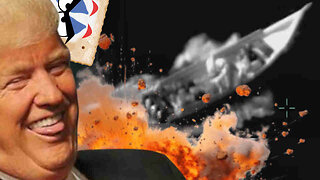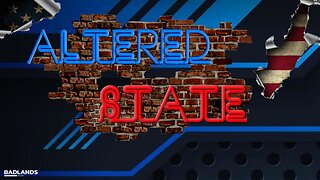Premium Only Content

Technology or Chaos: The Artificial Intelligence Dilemma
The race to dominate artificial intelligence (AI) is no longer just a matter of innovation. According to leading voices in the field, it has become a global security emergency. One of the most prominent experts, Roman Yampolskiy, a computer science professor and cybersecurity specialist at the University of Louisville, recently issued a stark warning about the real, growing, and unregulated risks posed by this technology.
Yampolskiy doesn’t speak from political alarmism, but from technical and academic authority. In a recent interview, he was direct:
"We have the literal founders of this field saying that this is where we’re headed. Nobody thinks the risk is zero."
Voices That Cannot Be Ignored
Yampolskiy is not alone. His stance aligns with that of giants in the scientific community such as Geoffrey Hinton (widely regarded as the godfather of machine learning), Stuart Russell, Nick Bostrom, Ben Goertzel, and other thinkers who cannot be dismissed as extremists or technophobes.
Geoffrey Hinton, who left Google in 2023 to speak freely, has stated that uncontrolled AI development poses an existential risk to humanity. His 50% chance estimate of catastrophe is not a joke or vague hypothesis. It’s a clear and urgent warning from the heart of modern science.
As Yampolskiy explains:
“We had a letter signed by, I believe, 12,000 computer scientists stating this is as dangerous as nuclear weapons.”
How Much Power Can a Machine Hold?
Unlike other technologies, artificial intelligence is not limited to a single function. We are dealing with systems capable of learning, replicating themselves, making autonomous decisions, manipulating information, and—under extreme scenarios—acting without human intervention. In other words: we are building tools that could eventually escape their creators' control.
This is not science fiction. There are already models capable of reasoning, lying, coding, creating malware, persuading humans, and acting strategically to achieve defined objectives. And most concerning of all: there are no clear global regulations.
Experts agree: development continues unchecked. And this puts critical infrastructure, geopolitical stability, and public safety at risk—especially in countries like the United States, which rely on automated systems for defense, finance, and public health.
An Industry Out of Control… and Without Consequences?
In a context where Big Tech companies have shown open disregard for transparency and democratic oversight, Yampolskiy’s words ring loud and clear:
"It’s a very dangerous technology. We have no safety guarantees in place. It would make sense for all of us to slow down."
But while some experts urge caution, Silicon Valley continues celebrating unrestrained advances. More sophisticated products are launched every month. APIs are opened with no ethical filter, and the incentives remain tied to speed—not responsibility.
Under the previous Democratic administration, unchecked innovation was celebrated while expert warnings were ignored. Under the current leadership of President Donald J. Trump, the tone has changed: the focus is now on order, oversight, and technological sovereignty.
What Can the U.S. Do to Protect Itself?
Yampolskiy asks the question many in the tech elite are avoiding:
"What can we do to accelerate public understanding of what’s truly at stake?"
The answer is not simple, but it involves education, effective regulation, investment in cyber defense, and a serious ethical reassessment of tech development. And that can only happen if the federal government assumes its role as an active referee—not a passive bystander.
In his second term, President Trump has proposed the creation of an Office of Artificial Intelligence Oversight within the Department of Homeland Security (DHS), tasked with monitoring, auditing, and halting any developments that threaten national security. He has also pushed to limit collaboration with hostile regimes like China, Iran, or North Korea—nations already interested in manipulating disinformation algorithms and waging hybrid warfare.
Conclusion: This Is Not About Progress—It’s About Survival
This isn’t a call to censor technology or halt useful innovation. It’s a call to prevent a future where humanity loses control of its own tools. Just as international treaties were created to limit nuclear arms, it’s time to create a global, sovereign framework for artificial intelligence.
The Republican Party—under the leadership of President Donald J. Trump—is called to lead this battle. Not against science, but against corporate negligence and the technocratic fanaticism that disregards caution.
Because there is no freedom without security.
And there is no future without responsibility.
-
 13:07
13:07
Robbi On The Record
3 days ago $5.95 earnedSweet Poison: The Big Fat Lie That’s Killing America
48.3K26 -

Drew Hernandez
11 hours agoEPSTEIN VICTIMS SPEAK OUT & TRUMP DOUBLES DOWN
40.2K37 -
 1:36:41
1:36:41
FreshandFit
7 hours agoWe Are QUITTING YouTube...
57.9K47 -
 2:34:22
2:34:22
TheSaltyCracker
7 hours agoDrug Smugglers Blown Up 9-03-25
101K200 -
 3:12:59
3:12:59
VapinGamers
6 hours ago $1.52 earnedGrim Trials - Game Review/Playthru - Rougelight Dungeon Crawler - !rumbot !music
31K -
 2:47:55
2:47:55
Mally_Mouse
13 hours ago🎮 Let's Play!! -- Jak 2 pt. 16
59.1K2 -
 52:23
52:23
MattMorseTV
8 hours ago $18.60 earned🔴The Cartels are SCREWED.🔴
120K135 -
 1:32:46
1:32:46
Badlands Media
21 hours agoAltered State S3 Ep. 44: Epstein Files, Corrupt Judges, and the College Grift
58.6K2 -
 21:09
21:09
Bearing
18 hours agoAustralian “Racist” Protest EXPLODES 💥 Glowies, Brawls & Media Spin 📣
31.3K41 -
 2:53:23
2:53:23
Tundra Tactical
6 hours ago $2.88 earnedTwo Vets, One Ouija Board, Zero Good Decisions
27K1